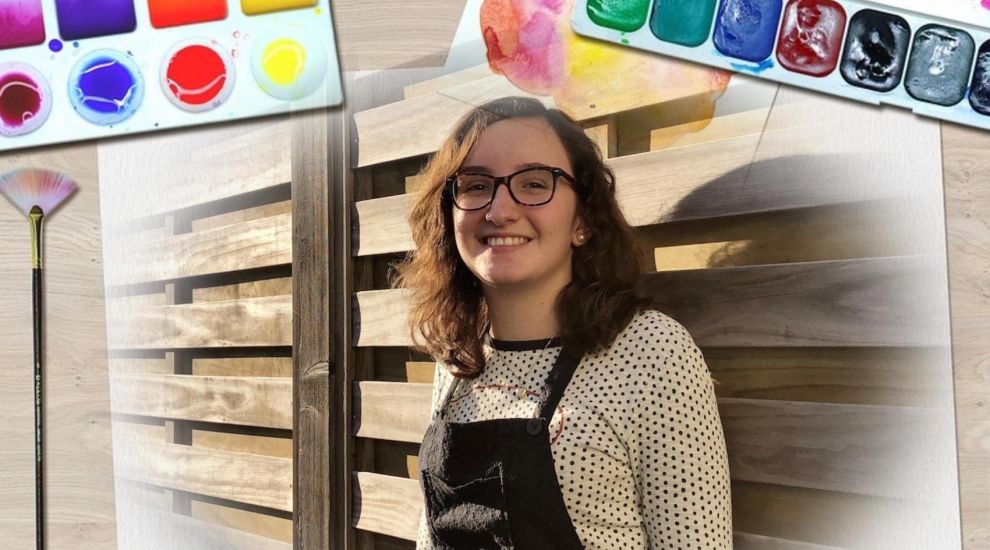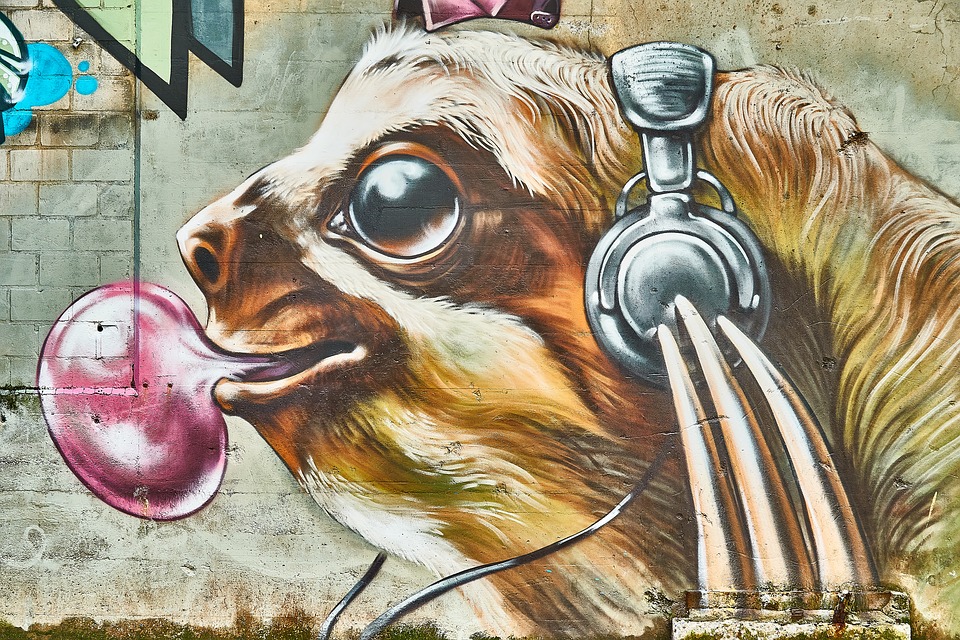

Whether through arts, cooking or even gardening... A local student has made the case for us all to be a little more creative for the benefit of our wellbeing and the wider community.
14-year-old Edith knows the impact of a creative lifestyle better than most.
When she's not at school, this artsy Hautlieu student spends her spare time doodling (most recently, she pencil sketched Archirondel), sewing costumes, and cooking Greek Food... And over the past two weeks, she's doing something else creative: flexing her writing muscles during Trident work experience with Express.
From teen wellbeing to enhancing prisoners' lives, she explains the benefits of creativity to inspire islanders to try something new "be that writing, drawing, sewing, growing or anything else that lifts you out of your normal routine"...
"Creativity is a major factor in the development of civilisation, countless inventions and beautiful art. We need to nurture and practise it like we do with other skills.
We actually don’t understand that much about where creativity originates from in the brain. The brain is in two halves and the current theory is that in creative individuals the part of the brain that facilitates communication between the halves is more developed. Furthermore when you’re being creative critical thinking capacity is reduced and long-term memory functions are also suppressed so that the brain is free to create new, unconstrained ideas without them being rejected prematurely.

Pictured: the brain plays a big part in creativity but we're unsure of how exactly it works
We might not know where creativity comes from but we do know that being creative has many benefits:

Pictured: Writing is a powerful creative tool for processing emotions
This is why we need to put a bigger emphasis on creativity everywhere.
For example, in schools I think that there should be more art and music lessons from a young age as both of these improve fine motor control and lead to an increased feeling of wellbeing.
A lot of teenagers are prone to anxiety and low self-esteem so it would be worth having a dedicated space within the school day of an hour or so of creative time a week where the students can choose what creative activity they want to do. I would happily trade in one of my five lessons of Maths a week for this (sorry Miss!) This would be a safe haven from exam stress, relationship issues or problems at home, because even if you take a creative subject for GCSE or A-Level it’s different because it's not just about enjoying what you're doing- there's a lot of pressure to do well.

Pictured: Stress affects everyone, but teenagers are particularly vulnerable.
I understand that it is harder to do in the workplace but if an employer could enable workers to gather for half an hour a week it is very likely that productivity will increase as the workforce will be happier and more motivated.
One study found that even just having art hanging on the walls and plants around you reduces health complaints and when the workers were allowed to choose where to put the art and plants the pace that they worked at increased by 30%.
It's not just the workplace or schools, creativity can be found flourishing in unexpected places.

Pictured: Prisoners explore their creativity by creating murals.
Jersey's prison allows prisoners to take part in creative activities such as painting murals and gardening. Painting murals gives prisoners a voice as they can depict their own ideas on to the walls for all to see. There is also an exhibition of prisoners' artwork at the Harbour Gallery (for the 11th year) in March, the prisoners have produced more than 60 items and, if these are sold, the money will go to charity.
Lucy Blackmore, who leads art projects in the prison, said: "The chance to showcase prisoner work is a motivating way of engaging prisoners in creative activity. This raises individual self-esteem and opens minds to engage in other educational opportunities, and behaviour management programmes: all geared towards helping prisoners to make life improving decisions."
The gardening projects give prisoners the great feeling (for the first time for some) of nurturing a living thing. Seeing it bloom as a direct result of their care and attention is a valuable experience for them to have. By bringing nature into what is sometimes characterised as a hard or monotonous environment, they lift everyone's spirits.

Pictured: Gardening is an activity prisoners do to get in touch with their creative side
So it is evident that creativity has a great impact on us as humans, which is why I think we need to spend more time being creative."
Edith (14) is a Hautlieu student on work experience with Express.
Comments
Comments on this story express the views of the commentator only, not Bailiwick Publishing. We are unable to guarantee the accuracy of any of those comments.